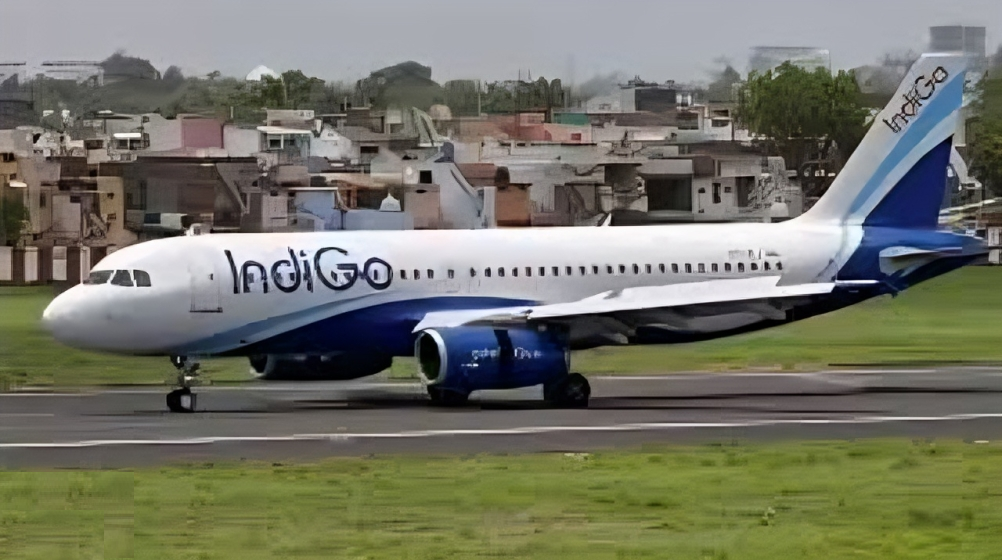New Delhi [India], June 23, 2025: India’s aviation sector is facing a serious controversy after a trainee pilot at IndiGo Airlines alleged caste-based discrimination by three senior officials. The complaint, which has now led to an official FIR, has sparked a debate about workplace discrimination and inclusivity within major Indian corporations.
The case has been registered under the Scheduled Castes and Scheduled Tribes (Prevention of Atrocities) Act, along with relevant sections of the Indian criminal law. The developments have drawn national attention, with calls for a thorough investigation and accountability.
What Are the Allegations?
The allegations surfaced after a detailed report by the Times of India (TOI) highlighted the ordeal faced by the 35-year-old trainee pilot from Bengaluru. According to the pilot, three IndiGo officials—identified as Tapas Dey, Manish Sahani, and Captain Rahul Patil—allegedly humiliated him using casteist remarks during a meeting on April 28, 2025, held in Gurugram.
The reported derogatory statements included deeply offensive remarks like:
- “You are not fit to fly an aircraft, go back and stitch slippers.”
- “You don’t even have the worth to be a watchman here.”
Such remarks, if proven true, constitute a clear violation of the SC/ST (Prevention of Atrocities) Act, which is aimed at protecting Scheduled Castes and Scheduled Tribes from discrimination and humiliation in public spheres.
Pattern of Harassment Alleged
According to the FIR, the incident on April 28 was not an isolated event. The trainee pilot alleged that harassment was sustained and systematic, reportedly aimed at forcing him to resign from his post at IndiGo.
Some of the key forms of alleged harassment included:
- Being ordered to leave his phone and bag outside before entering the meeting room, in what he described as a “demeaning manner.”
- Regular use of caste-based slurs over a period of time.
- Unjustified salary deductions, reportedly to put psychological pressure on him.
- Forced retraining programs, which were allegedly unnecessary.
- Cancellation of travel benefits that he was entitled to as part of his employment.
- Receiving unwarranted warning letters for trivial or fabricated reasons.
Despite raising these issues internally with IndiGo’s ethics committee and senior management, the pilot claims that no concrete action was taken against the accused officials, compelling him to approach the police for justice.

Legal Action and Police Investigation
An FIR was first registered in Bengaluru, where the trainee pilot is based, and later transferred to DLF-1 police station in Gurugram for further investigation. The case has been filed under Sections 3(1)(r) and 3(1)(s) of the SC/ST Act, which address intentional insults or intimidation to humiliate members of Scheduled Castes or Tribes in public.
Additionally, provisions of the Bharatiya Nyaya Sanhita (BNS) have also been invoked, including:
- Section 351(2): Criminal intimidation
- Section 352: Intentional insult with intent to provoke breach of peace
- Section 3(5): Common intention
Assistant Sub-Inspector Dalwinder Singh of the DLF-1 police station confirmed that the investigation is in its early stages. “We have started gathering evidence and will soon record statements from both the complainant and the accused officials,” he told TOI.
Indigo Airlines Responds to Allegations
In response to the serious charges, IndiGo Airlines has issued an official statement strongly denying the allegations. Speaking to ANI, an IndiGo spokesperson said:
“IndiGo upholds a zero-tolerance policy towards any form of discrimination, harassment, or bias and remains firmly committed to being an inclusive and respectful workplace. IndiGo strongly refutes these baseless claims and stands by its values of fairness, integrity, and accountability. We will extend our full support to the law enforcement agencies as required.”
The airline emphasized that it takes all such matters seriously and has mechanisms in place for addressing grievances within its organizational structure.
Larger Implications: Workplace Discrimination in India
This incident has raised larger questions about workplace discrimination in India, especially in elite professions like aviation. Despite laws like the SC/ST (Prevention of Atrocities) Act and company-level ethics committees, reports of caste-based discrimination continue to emerge from both public and private sectors.
If the trainee pilot’s allegations are substantiated, this case could serve as a landmark example for the aviation industry and other corporate sectors in India to reevaluate their internal policies, training, and enforcement of inclusivity measures.
Activists and organizations working for Dalit rights have already begun voicing concerns on social media, demanding transparency in the investigation and appropriate action if the charges are proven.
2028 Los Angeles Olympics: Bold Plans, Big Dreams, and Major Changes Unveiled


